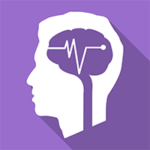- Courses on management and business skills
- Courses on digital marketing skills
- Courses on health and safety
Autism awareness
 Autism is a lifelong developmental disability that affects how a person communicates with and relates to other people around them. This course will provide you with an understanding of what autism is and how it affects a child’s daily life. It will touch on factors that contribute towards a child developing autism as well as some of the typical behaviours associated with it and how you can provide effective support for those with the condition. It also discusses what happens during the diagnosis process, some of the intervention methods that can help manage the condition and suggests some simple adaptations you can make to improve a child with autism’s day to day life.
Autism is a lifelong developmental disability that affects how a person communicates with and relates to other people around them. This course will provide you with an understanding of what autism is and how it affects a child’s daily life. It will touch on factors that contribute towards a child developing autism as well as some of the typical behaviours associated with it and how you can provide effective support for those with the condition. It also discusses what happens during the diagnosis process, some of the intervention methods that can help manage the condition and suggests some simple adaptations you can make to improve a child with autism’s day to day life.
Target Audience
People working in adult and child care environments. Although the course focuses on children with autism, having an awareness of the condition and how best to provide support to someone with ASD will be of use to anyone who interacts with and cares for children and adults as part of their work.
Courses
- Autism Awareness – £25
Diabetes Awareness
 Diabetes is a serious lifelong health condition that occurs when the amount of glucose, or sugar, in the blood is too high. If left untreated, high blood glucose levels can cause serious health complications. Diabetes can develop in anyone at any point in their life although there are certain groups and age ranges where it is more common. There are a range of symptoms that could indicate that someone has Diabetes, these range from excessive thirst to feeling more tired than usual. It is believed that up to 26% of residential and nursing home residents have Diabetes so being able to recognise the symptoms and knowing how you can help them to manage the condition is essential.
Diabetes is a serious lifelong health condition that occurs when the amount of glucose, or sugar, in the blood is too high. If left untreated, high blood glucose levels can cause serious health complications. Diabetes can develop in anyone at any point in their life although there are certain groups and age ranges where it is more common. There are a range of symptoms that could indicate that someone has Diabetes, these range from excessive thirst to feeling more tired than usual. It is believed that up to 26% of residential and nursing home residents have Diabetes so being able to recognise the symptoms and knowing how you can help them to manage the condition is essential.
Target Audience
This course is aimed at people working in the health and social care sector and will provide an overview of the condition, the common symptoms that might indicate someone has diabetes, methods of diagnosis, some possible treatments and common complications that can affect those with the condition.
Courses
- Diabetes Awareness – £25
Drug & Alcohol Awareness
 This course starts with official statistics to illustrate the scale of drug and alcohol abuse in the UK. You’ll learn in detail about commonly used drugs, including cannabis, cocaine, heroin, LSD, ecstasy and some new designer drugs. Turning to alcohol abuse, the course will show you how to introduce a 4-stage plan to deal with any problems – including how to write an effective Drug and Alcohol Policy. Beyond this the course will explore best business practice in terms of HR, legislation, spotting signs of drug misuse and the implementation of workplace solutions. The course also explains how the Advisory, Conciliation and Arbitration Service (ACAS) can help with effective alcohol and drugs policies and the development of related management skills. Finally, it looks at current drug treatments and the options for outside support available to individuals and organisations.
This course starts with official statistics to illustrate the scale of drug and alcohol abuse in the UK. You’ll learn in detail about commonly used drugs, including cannabis, cocaine, heroin, LSD, ecstasy and some new designer drugs. Turning to alcohol abuse, the course will show you how to introduce a 4-stage plan to deal with any problems – including how to write an effective Drug and Alcohol Policy. Beyond this the course will explore best business practice in terms of HR, legislation, spotting signs of drug misuse and the implementation of workplace solutions. The course also explains how the Advisory, Conciliation and Arbitration Service (ACAS) can help with effective alcohol and drugs policies and the development of related management skills. Finally, it looks at current drug treatments and the options for outside support available to individuals and organisations.
Target Audience
This course is aimed at managers and staff in all industries who have a critical role to play in reducing drug, alcohol and substance misuse in the UK.
Courses
- Drug & Alcohol Awareness – £35
Epilepsy Awareness
 When introducing epilepsy, we must first recognise that there are around 40 different types of seizures. Statistics show that one in five people will have a seizure at some time in their life although only some of these will be caused by epilepsy. Epilepsy is a neurological condition that affects the brain and the nervous system and is covered by the Equality Act 2010. The condition can affect people for only a portion of their life, or it can be lifelong. Because of the varied nature of the condition an awareness of epilepsy and the actions you can take if you are present during a seizure is incredibly useful for those who work in health and social care. This course will give you an overview of epilepsy. It lists the methods of diagnosis, what a seizure is and how the brain can be affected. It will introduce some possible seizure triggers and describe what to do when someone has a seizure. It will also discuss some of the treatments offered to people with epilepsy and provide practical advice on what you can do if you witness someone having a seizure.
When introducing epilepsy, we must first recognise that there are around 40 different types of seizures. Statistics show that one in five people will have a seizure at some time in their life although only some of these will be caused by epilepsy. Epilepsy is a neurological condition that affects the brain and the nervous system and is covered by the Equality Act 2010. The condition can affect people for only a portion of their life, or it can be lifelong. Because of the varied nature of the condition an awareness of epilepsy and the actions you can take if you are present during a seizure is incredibly useful for those who work in health and social care. This course will give you an overview of epilepsy. It lists the methods of diagnosis, what a seizure is and how the brain can be affected. It will introduce some possible seizure triggers and describe what to do when someone has a seizure. It will also discuss some of the treatments offered to people with epilepsy and provide practical advice on what you can do if you witness someone having a seizure.
Target Audience
This course is aimed primarily at people working in the care sector with children or adults however anyone who would like to expand their knowledge or understand what to do if they see someone have a seizure should take this course. Other courses that complement this one include our range of First Aid courses. These can be found on our health and safety page.
Courses
- Epilepsy Awareness – £25
Introduction to the Early Years Foundation Stage (EYFS)
 The Early Years Foundation Stage, commonly referred to as the EYFS is a framework that all Early Years providers must follow, including nursery classes in schools and childminders. This course aims to provide a gentle introduction to the expectations of the EYFS and it can also act as a refresher for those wanting to update their knowledge. It will introduce you to some of the key documents and legislation that relate to Early Years providers, the process for registering with Ofsted and the various policies and procedures that need to be in place. It also covers learning and development requirements, how to observe and assess the progress of children in your care, and the safeguarding and welfare requirements laid out in the EYFS Framework.
The Early Years Foundation Stage, commonly referred to as the EYFS is a framework that all Early Years providers must follow, including nursery classes in schools and childminders. This course aims to provide a gentle introduction to the expectations of the EYFS and it can also act as a refresher for those wanting to update their knowledge. It will introduce you to some of the key documents and legislation that relate to Early Years providers, the process for registering with Ofsted and the various policies and procedures that need to be in place. It also covers learning and development requirements, how to observe and assess the progress of children in your care, and the safeguarding and welfare requirements laid out in the EYFS Framework.
Target Audience
This course is suitable for anyone who requires an overview of the EYFS, including governors and administration staff in settings.
Courses
- Introduction to the EYFS – £25
Learning Disability Awareness
 Learning disabilities, however they are acquired, are lifelong. They are neurological disabilities and as such affect how an individual understands and remembers information, how they learn and communicate. People can be born with learning disabilities or they may acquire them later in life. There are many differing types of learning difficulty and they can exhibit in many different ways and with many different characteristics. This course will start by giving you an overview of some of the common types and causes of learning disabilities and how they affect people. It will touch on how a person centred approach to care will get the best results and look at how management must perform, and at the needs of the individual. It will also discuss overcoming the stigma attached to learning disabilities and much more.
Learning disabilities, however they are acquired, are lifelong. They are neurological disabilities and as such affect how an individual understands and remembers information, how they learn and communicate. People can be born with learning disabilities or they may acquire them later in life. There are many differing types of learning difficulty and they can exhibit in many different ways and with many different characteristics. This course will start by giving you an overview of some of the common types and causes of learning disabilities and how they affect people. It will touch on how a person centred approach to care will get the best results and look at how management must perform, and at the needs of the individual. It will also discuss overcoming the stigma attached to learning disabilities and much more.
Target Audience
This course is suitable for anyone who needs to develop a general awareness of learning disabilities.
Courses
- Learning Disability Awareness – £25
Lockdown Procedure
 In the last decade the threats to our society have multiplied and evolved in many ways. Terrorist organisations have transferred their fight from Iraq and Afghanistan to our back garden, and we have seen the damage that a small number of determined individuals can do. Being prepared and knowing how to handle an emergency situation can be invaluable as it means that proactive positive action can be taken to protect yourself and others in your care. This course will start by introducing the role of the lockdown officer then discuss some of the likely reasons for a lockdown, go over some of the steps you can take to prepare your school for lockdown as well as what to do in the event of a lockdown taking place.It gives them an overview of what to expect and how to act in a lockdown situation and is intended to inform and prepare staff rather than alarm them.
In the last decade the threats to our society have multiplied and evolved in many ways. Terrorist organisations have transferred their fight from Iraq and Afghanistan to our back garden, and we have seen the damage that a small number of determined individuals can do. Being prepared and knowing how to handle an emergency situation can be invaluable as it means that proactive positive action can be taken to protect yourself and others in your care. This course will start by introducing the role of the lockdown officer then discuss some of the likely reasons for a lockdown, go over some of the steps you can take to prepare your school for lockdown as well as what to do in the event of a lockdown taking place.It gives them an overview of what to expect and how to act in a lockdown situation and is intended to inform and prepare staff rather than alarm them.
Target Audience
This course is aimed at teachers, school administrators and support staff. Other courses that complement this one include Paediatric First Aid, Prevent Duty, Positive Handling in Schools and Safeguarding Children.
Courses
- Lockdown Procedure – £35
Mental Health Awareness
 People often equate the words mental health with mental illness and there are many definitions of what mental health actually is. Mental health issues can happen to anyone despite social background, intelligence, gender or other factors. This course explains the difference between mental health and mental illness. It covers the symptoms of a number of the most common mental illnesses so you will know what to look out for or what to expect if you are working with someone with one of these conditions. As well as providing some practical advice on how you can work effectively with those affected by these conditions.
People often equate the words mental health with mental illness and there are many definitions of what mental health actually is. Mental health issues can happen to anyone despite social background, intelligence, gender or other factors. This course explains the difference between mental health and mental illness. It covers the symptoms of a number of the most common mental illnesses so you will know what to look out for or what to expect if you are working with someone with one of these conditions. As well as providing some practical advice on how you can work effectively with those affected by these conditions.
Target Audience
This course is suitable for anyone who needs to develop a general awareness of mental health.
Courses
- Mental Health Awareness – £25
Paediatric First Aid
 First aid covers a multitude of skill sets and responses to many medical situations. Its primary aim, is to provide immediate medical care and treatment that will either resolve the situation (in less serious ‘everyday’ cases) or provide an essential short-term emergency stop-gap until professional medical assistance is in place. The aim of this course is to equip you with the theoretical knowledge, skills and confidence you need to deal with paediatric first aid situations. It covers all of the key topics including: emergency planning, assessing a situation, basic Life Support, CPR, shock, fractures, bleeding and a range of other minor illness and injuries. Please be aware that having a theoretical knowledge on its own is not enough to be considered competent in paediatric first aid and practical demonstration in some areas is required to complete this training.
First aid covers a multitude of skill sets and responses to many medical situations. Its primary aim, is to provide immediate medical care and treatment that will either resolve the situation (in less serious ‘everyday’ cases) or provide an essential short-term emergency stop-gap until professional medical assistance is in place. The aim of this course is to equip you with the theoretical knowledge, skills and confidence you need to deal with paediatric first aid situations. It covers all of the key topics including: emergency planning, assessing a situation, basic Life Support, CPR, shock, fractures, bleeding and a range of other minor illness and injuries. Please be aware that having a theoretical knowledge on its own is not enough to be considered competent in paediatric first aid and practical demonstration in some areas is required to complete this training.
Target Audience
Paediatric first aid is a skill that is useful for anyone that works with children and infants. This includes those working in nursery, school and pre-school environments, as well as professional childminders, club leaders and sports coaches. Other courses that complement this one include Lockdown Procedure, Prevent Duty, Positive Handling in Schools and Safeguarding Children.
Courses
- Paediatric First Aid – £35
Positive Handling in Schools
 Positive Handling is about knowing when and how to act in a difficult situation. This can make the difference between a positive outcome and a potentially career ending prosecution. This course will start by looking at some examples and statistics which highlight the seriousness and extent of aggressive pupil behaviour, it will then go on to explain how you can identify the stages of aggression, and provide some tips on how you could de-escalate a pupil before they lash out. It also looks at where the law stands on this subject and finally best practice if you ever do need to restrain a pupil.
Positive Handling is about knowing when and how to act in a difficult situation. This can make the difference between a positive outcome and a potentially career ending prosecution. This course will start by looking at some examples and statistics which highlight the seriousness and extent of aggressive pupil behaviour, it will then go on to explain how you can identify the stages of aggression, and provide some tips on how you could de-escalate a pupil before they lash out. It also looks at where the law stands on this subject and finally best practice if you ever do need to restrain a pupil.
Target Audience
This course is aimed at teachers, school administrators and support staff. Other courses that complement this one include Paediatric First Aid, Lockdown Procedure, Positive Handling in Schools and Safeguarding Children.
Courses
- Positive Handling in Schools – £25
Prevent Duty
 Intelligence indicates that further terrorist attacks in our country are ‘highly likely’. Experience tells us that the threat comes not just from foreign nationals, but from terrorists born and bred in Britain. It is therefore vital that our counter-terrorism strategy contains a plan to prevent radicalisation and stop would-be terrorists from committing atrocities. The Prevent strategy, published by the Government is part of the UK’s overall counter-terrorism strategy. This course starts with an overview of the Government’s Prevent strategy, and then looks at some of the reasons people become extremists. It goes on to cover the objectives of the Prevent strategy, how to base your actions on a risk-based approach, what to do if you are concerned and much more.
Intelligence indicates that further terrorist attacks in our country are ‘highly likely’. Experience tells us that the threat comes not just from foreign nationals, but from terrorists born and bred in Britain. It is therefore vital that our counter-terrorism strategy contains a plan to prevent radicalisation and stop would-be terrorists from committing atrocities. The Prevent strategy, published by the Government is part of the UK’s overall counter-terrorism strategy. This course starts with an overview of the Government’s Prevent strategy, and then looks at some of the reasons people become extremists. It goes on to cover the objectives of the Prevent strategy, how to base your actions on a risk-based approach, what to do if you are concerned and much more.
Target Audience
This course is aimed at teachers, school administrators and support staff. Other courses that complement this one include Paediatric First Aid, Lockdown Procedure, Positive Handling in Schools and Safeguarding Children.
Courses
- Prevent Duty – £35
Principles of Communication
 When working in the adult social care sector, communicating is essential to develop your understanding of a service user’s needs, so you can provide them with the support they require. If the information exchanged is inaccurate or misleading, mistakes can be made which can result in ineffective care and a negative view of the service. Professionals will form many different relationships in their work. Some will be formal and others more informal. Whoever you are communicating with and whatever the method you use it is essential that you make sure your communication is appropriate and effective. This course covers some of the different ways of communication, how to identify barriers to communication and how to reduce these, making sure the person you are communicating with understands what you are communicating, how to get help with communication issues and much more.
When working in the adult social care sector, communicating is essential to develop your understanding of a service user’s needs, so you can provide them with the support they require. If the information exchanged is inaccurate or misleading, mistakes can be made which can result in ineffective care and a negative view of the service. Professionals will form many different relationships in their work. Some will be formal and others more informal. Whoever you are communicating with and whatever the method you use it is essential that you make sure your communication is appropriate and effective. This course covers some of the different ways of communication, how to identify barriers to communication and how to reduce these, making sure the person you are communicating with understands what you are communicating, how to get help with communication issues and much more.
Target Audience
This course is suitable for people who work with service users in the adult social care sector.
Courses
- Principles of Communication – £25
Safeguarding Training
 These courses have been created because, first and foremost, each and every one of us has basic human rights. Chief among these is the right to be healthy, happy and treated well, regardless of race, age, gender or location. When these rights are abused in some way it’s wrong, and it is therefore vital that guidelines, policies and procedures are followed to enable everyone, without exception to live a life in which these basic values and rights are maintained and upheld.
These courses have been created because, first and foremost, each and every one of us has basic human rights. Chief among these is the right to be healthy, happy and treated well, regardless of race, age, gender or location. When these rights are abused in some way it’s wrong, and it is therefore vital that guidelines, policies and procedures are followed to enable everyone, without exception to live a life in which these basic values and rights are maintained and upheld.
Target Audience
The Safeguarding Children course is aimed at teachers, school administrators and support staff. Other courses that complement this one include Paediatric First Aid, Lockdown Procedure,Prevent Duty and Positive Handling in Schools.
Courses
- Safeguarding Children – £35
- Safeguarding Adults – £35